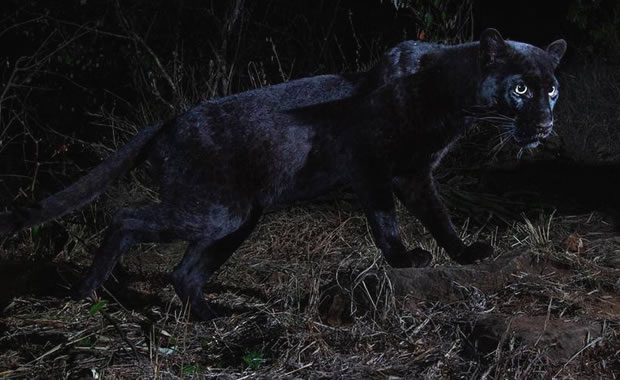Creature Profile
The Abbott's Duiker is a very secretive forest-dependent antelope belonging to the family Bovidae. It is about an average of 28 inches long and can weigh up to 150 lbs. It has a dark-brown or black coat of fur with a tinge of red on the sides and the belly. The face is pale or light-gray in color. The head has two thin and short horns that are sharp. These horns can measure up to 5 inches in length. Between these two horns is a distinctive tuft of red to brown hair. It has a robust body with a thick neck and has short legs that are also thick. It is both a diurnal and nocturnal animal being active during day and night respectively.
Diet consists of vegetation such as leaves, fruits, flowers, balsams green shoots and leaves, sweet potatoes, bananas, cowpeas, and beans among others. This secretive mammal prefers to inhabit areas such as montane and sub-montane forests and in clearings within them. It is mostly common at elevations between 3,900 to 8,800 feet. It can also be found in low land and semi-deciduous forests, bamboo forests and rarely in plateau-grasslands. The Abbott's Duiker is endemic to Tanzania in East Africa in areas such as the Kilimanjaro forest, the Matundu forest, and Uzdungwa Mountain. It can also be found on Mt. Luhombero, Livingstone-Kitulo and Mt. Rungwe among other areas. Due to its secretive lifestyle, very little is known about the Abbott's Duiker's breeding habits and offspring.
The Abbott's Duiker is a rare species and was listed as endangered in 2008 due to a number factors, including continuous hunting of the species for bush-meat, habitat loss due to human activities, being sparsely spread in its area of occupation and fragmentation, and predation mainly by leopards, pythons and eagles. The accurate number of individuals left in the wild is unknown, but there are estimated to be less than 2000 individuals all over Tanzania. Conservation measures include legal protection against hunting and the education of hunters about environmental conservation. However, even with these efforts to conserve the species, there has been a steady reduction in its numbers which serves as a warning to Tanzania and the world as a whole about their near extinction. There is therefore a need for more action in order to prevent the extinction of this precious species.
Wikipedia Article

|
Wikipedia Article Copyright Notice: This article is licensed under the GNU Free Documentation License. It uses material from the Wikipedia article "Abbott's duiker". |
May 6, 2017
Glenn, C. R. 2006. "Earth's Endangered Creatures - Abbott's Duiker Facts" (Online). Accessed 4/26/2024 at http://earthsendangered.com/profile.asp?sp=1928&ID=1.
Need more Abbott's Duiker facts?



